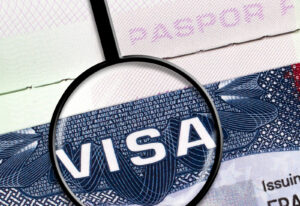International companies often ask our FDI lawyers in the United States about United States banking for foreign companies. It can be difficult and confusing for an international company to determine the best way to engage in banking in the U.S. We know that because it is even confusing for certain types of U.S. companies to determine who to bank with. We also know that United States banking laws are some of the most complicated in the world.
In the U.S., banking is not limited to traditional large international banks. Credit unions are often among the first financial institutions we reach out to on behalf of our clients. We do this because most credit unions are confined to specific states or to specific areas of certain states, so they know the local market very well. And they are often very good at customer service, which means they are a pleasure to work with. They also tend to be quite creative when we are looking for a banking solution for our clients.
Many regional banks also excel in customer services and are willing to be more creative than larger national or multinational banks. Along with credit unions and bankers, payment processors and payment software companies are also good resources when trying to find the right banking institution because they work with many financial institutions and can provide valuable insight based on your industry and geographical location in the U.S.
Smaller banks are generally not comfortable doing business with a foreign business because they do not have the resources to conduct international “KYC” (know your customer due diligence required of U.S. banks). For some banks, a payment to or from a place like Hong Kong always raises flags in the internal systems. Some are prepared to deal with that complexity while others are not.
But we have worked with some smaller U.S. banks that specialize in working with international companies. They will let a foreign company establish a U.S. bank account with them without anyone needing to come to the U.S. That service will be very valuable to foreign companies, even after we are past Covid.
Larger international banks are likely to be willing to help foreign companies open a U.S. bank account. For instance, HSBC has locations across the U.S., as well as Hong Kong and Singapore, so it would be well situated to conduct the required KYC due diligence on an Asian-based company in order to help the company open a U.S. bank account.
We recently spoke with a representative at HSBC in the U.S. to ask two questions, whether international companies could: (1) open a U.S. bank account from a location such as Hong Kong or Singapore or (2) open a Hong Kong or Singapore bank account and receive payments at a U.S. branch of HSBC. The answer to both of those questions was no. In order to open a U.S. account at HSBC, you would need to form a U.S. subsidiary.
HSBC and other larger international banks may be satisfied with a foreign company directly registering to do business in the U.S. without forming a U.S. subsidiary. The decision on whether to form a U.S. entity is somewhat complex because it requires a tax analysis alongside the foreign company’s U.S. business plans for where it will establish its presence and how it will engage with U.S. customers.
Some foreign companies only need a U.S. bank account for payment purposes and do not intend to establish a U.S. presence. A payment software company we recently spoke with works with many banks, and at least one of those banks in the U.K. will provide a foreign company with a U.S. bank routing number so that U.S. based customers can make payments to that U.S. account. After payment is made, the UK bank requires 3-5 days to transfer the payment to an account abroad.
That particular structure was focused on a business that utilized credit card payments. Those transactions generally require a 3% credit card processing fee, which may significantly reduce a company’s sales margins. The bank would charge a per transaction percentage fee, as well. Some U.S. states allow businesses to charge the 3% processing fee to their customers, so credit card payments may remain a viable option for a foreign company.
There are many options available to foreign businesses with U.S. banking needs, and these should be considered carefully alongside the company’s U.S. business plans.

























